LifeCredit computer game envisions a dystopian future ruled by a social credit system
Digital designer Diana Ganea's LifeCredit video game imagines a dystopian future where social status is determined by a corporate credit-system that rewards or punishes citizens.
Set in the year 2050, the LifeCredit game sees players take on the character of an office worker who faces complications as they try to change their job.
This process requires undergoing a social-credit review, through a system run by an imagined private UK company.
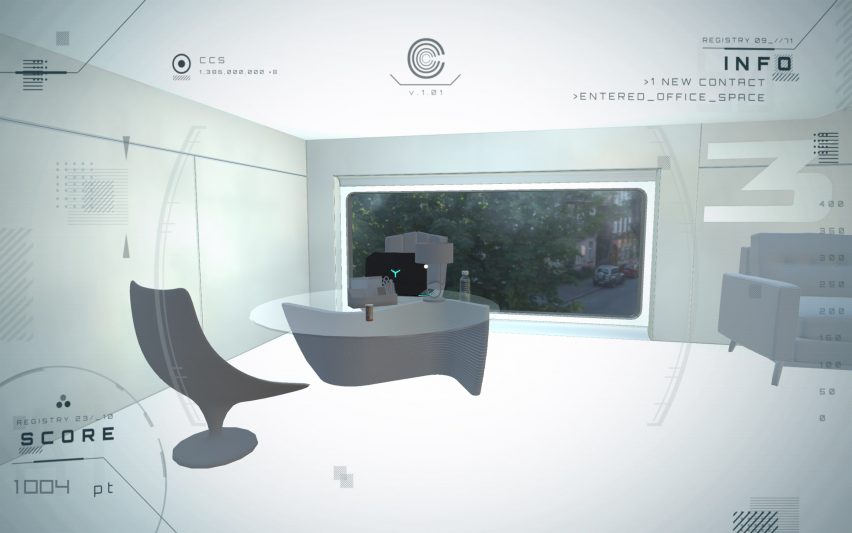
The game is loosely based on China's social-ranking system, which was first announced back in 2014. This accumulation of data is primarily done through surveillance monitoring and government-hired "information collectors".
Currently, the system is only implemented in parts of the country but there are plans for it to be enforced on a nation-wide scale by 2020. It makes it possible for citizens to be rewarded or punished depending on their actions through point allocation, similar to a financial credit score.
Ganea's game gives players the chance to experience what it feels like to be involuntarily subject to social scoring. It also taps into recent disquiet about corporations using individual's data as a revenue stream.
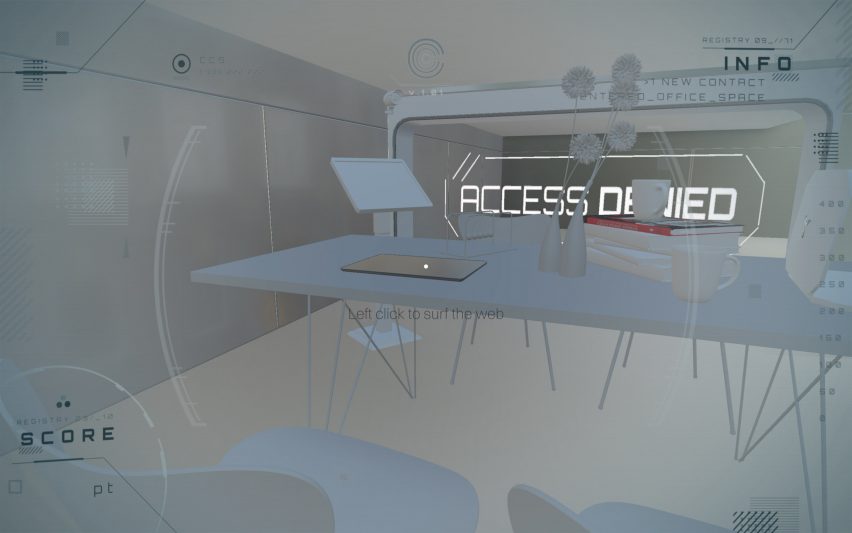
"I think it is important to highlight that corporations are gathering information on people unknowing of the fact of it being collected daily," said Ganea.
"What will be the future use of it? Can laws and regulations really protect the citizen, or do the citizens need to be more aware?" she asked.
"What will happen if we were subject to a social scoring system? Will we be able to maintain the rights and freedoms we enjoy today?" added the designer.
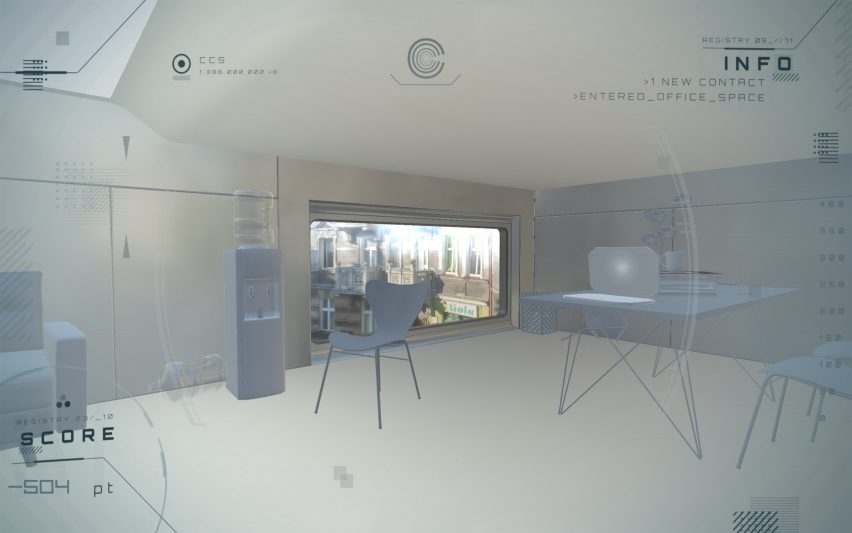
Ganea avoided using textures and colours in the design of the game to make its world seem unreal and artificially constructed.
This white, neutral backdrop is also how she imagines interior design might look in the future – "seamless and continuous" with no obvious contrasts between doors, walls and tables.
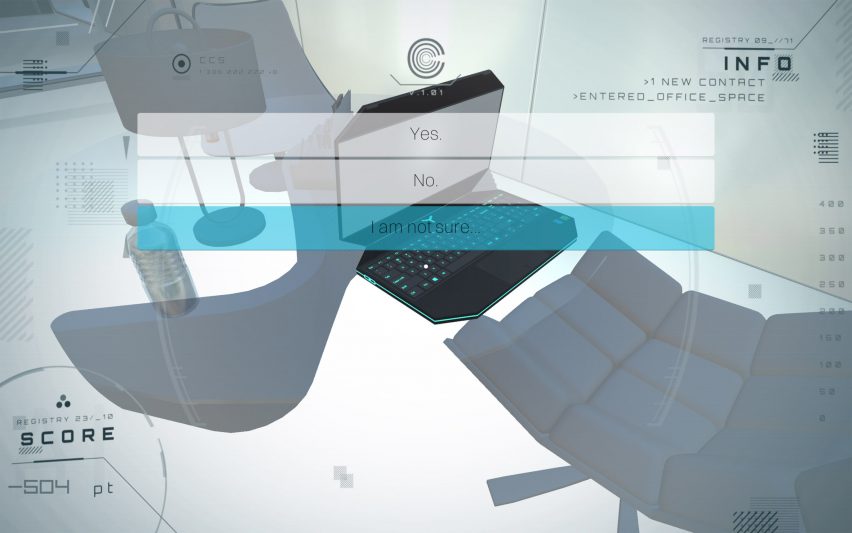
The game designer took cues from the interactive Black Mirror: Bandersnatch film – a feature-length version of the dystopian TV show – with a choose-your-own-adventure type of plot where the viewer can dictate which direction the storyline takes.
Her LifeCredit game is based on a questionnaire that is disguised as part of the "social credit review" that takes place in the film.
"It is meant to appear as if the questionnaire gives you a chance to change the outcome of the story, but it doesn't change anything, which is the whole point of this game," Ganea explained.
While the game slightly differs from the function of a choose-your-own-adventure game, it is built using the same interactive tools. Flowcharts were used to give the scriptwriters, animators and game designers an overview of the different outcomes of each scene.
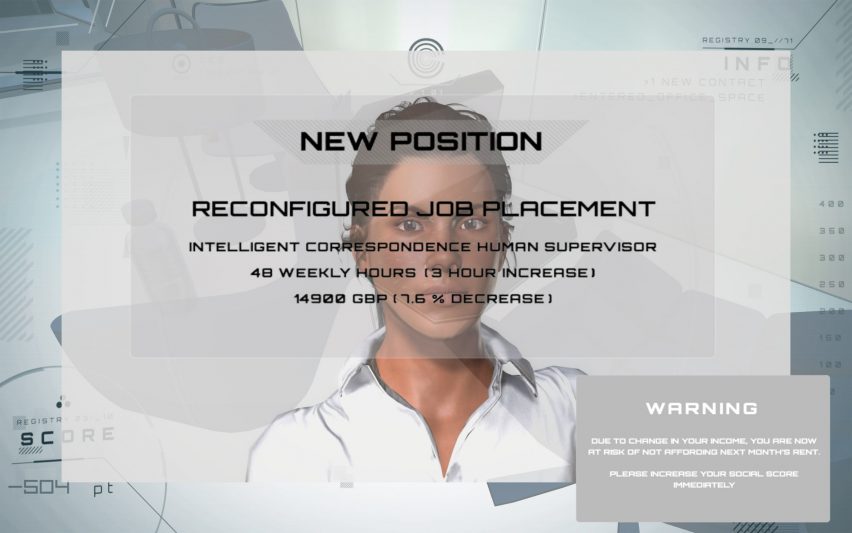
"Through collaboration with the artistic duo Javier Ruiz and Federico Pozuelo, we created a world that only holds one ending but has a range of possibilities for the course of actions," she added.
"When interacting with the 'host' and the props within the office space, it might feel that you have control over the outcome or ending, but this is not the case," said Ganea.
The only outcome of the game sees the player's social-credit score decrease to the point where they can no longer afford to keep their current job placement.
According to the designer, this is to demonstrate the effects of these systems, and how they could potentially affect everyday life.
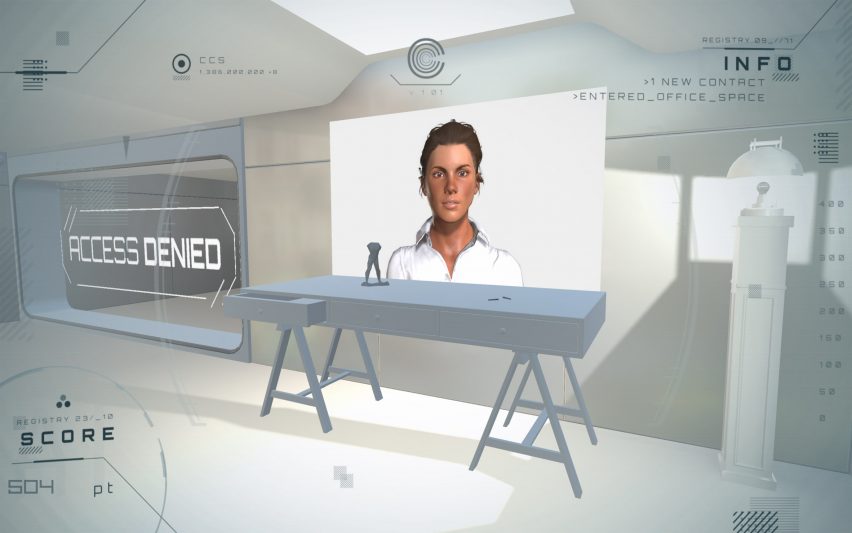
London-based designer Keiichi Matsuda also created a dystopian future workplace, which is dominated by augmented reality in order to keep up with the growing obsession with productivity.
Called Merger, the four-minute presents an accountant who is competing with the algorithms that have taken over business and pushed many humans. The worker has optimised her environment with gesture-controlled augmented reality interfaces that allow her to be "on call" for her clients at all times.